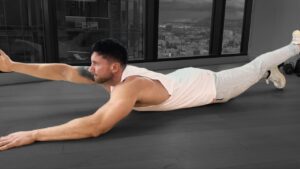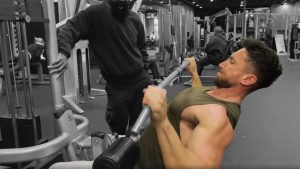Sculpted shoulders feature on everyone’s dream body checklist. And one of the key exercises to get there is the cable lateral raise. This is a shoulder exercise that focuses on the middle head of the deltoids-the muscles in the rounded contour of your shoulders.
A study confirms that the cable lateral raise works to strengthen the subscapularis muscle in the rotator cuff. This further promotes easy movement in the upper body. Plus, when you combine it with sets of front raises, you can sculpt your shoulder beautifully.
How to perform the cable lateral raise
The cable lateral raise is fairly straightforward to perform. All you need to do is follow these simple instructions:
- 1Choose weights that you’re comfortable lifting with a single hand.
- 2Position yourself next to the cable machine.
- 3Maintain a good posture, with your feet placed shoulder-width apart.
- 4Once you have the form right, push your body forward with your chest inclined forward. While you do so, point the shoulders back while bending the knees.
- 5With your free hand, grab the handle of the pulley machine for support.
- 6Hold the stirrup with the outside arm as you reach across your body.
- 7Slightly bend the elbow to an angle of ten to thirty degrees as you raise your arm to level with the shoulder.
- 8Exhale as you lift the weight and do not rotate your arm while raising the stirrup. Focus on the specific area that you’re training through this exercise-the middle shoulder.
- 9Hold the position you arrive at for at least five seconds. Inhale as you lower the weight and allow the cable to stop completely before you begin the next rep.
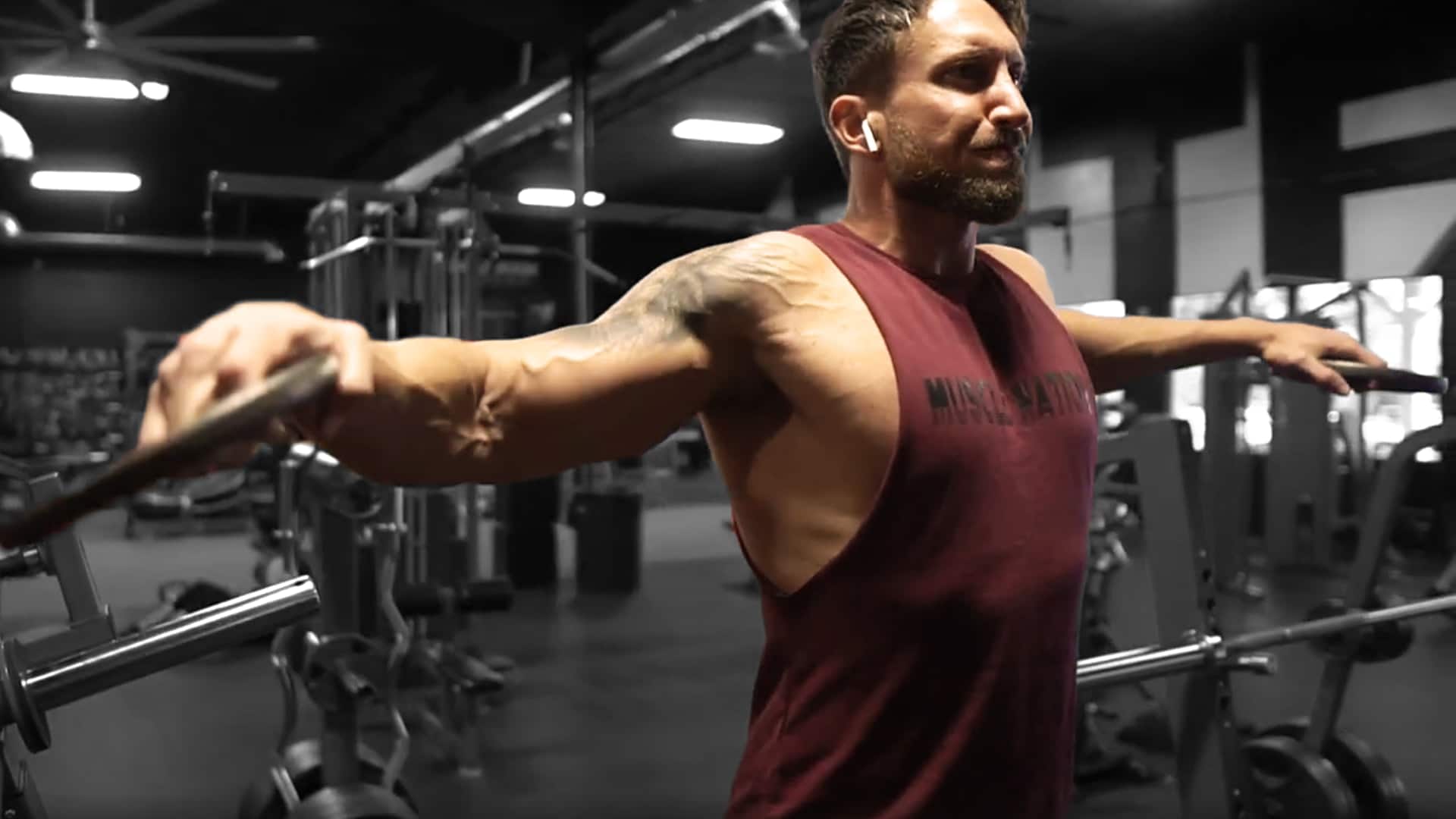
Perform at least 10-15 repetitions for each arm while aiming for a minimum of 3 sets. Alternatively, calculate the correct number of reps with the One Rep Max Calculator.
Tip: Start with low weights, focus on the mid-shoulder region, exhale as you lift and inhale as you lower the weight, and take an appropriate pause between steps. Never pick a weight that is causing unnecessary pain or spasms. Check out the video for further clarity.
Are there any variations to the cable lateral raise?
Absolutely, workouts must never be monotonous. You can add some fun to your workout by trying these variations to the cable lateral raise.
1. Dead-stop lateral raises
This variation slows down the momentum as it increases tension in your muscles. That being said, while using the pulley cable machine you got to ensure that your form is correct. If you are unsure of your form, stick to dumbbells instead. Here’s how you can do the seated dumbbell lateral raise:
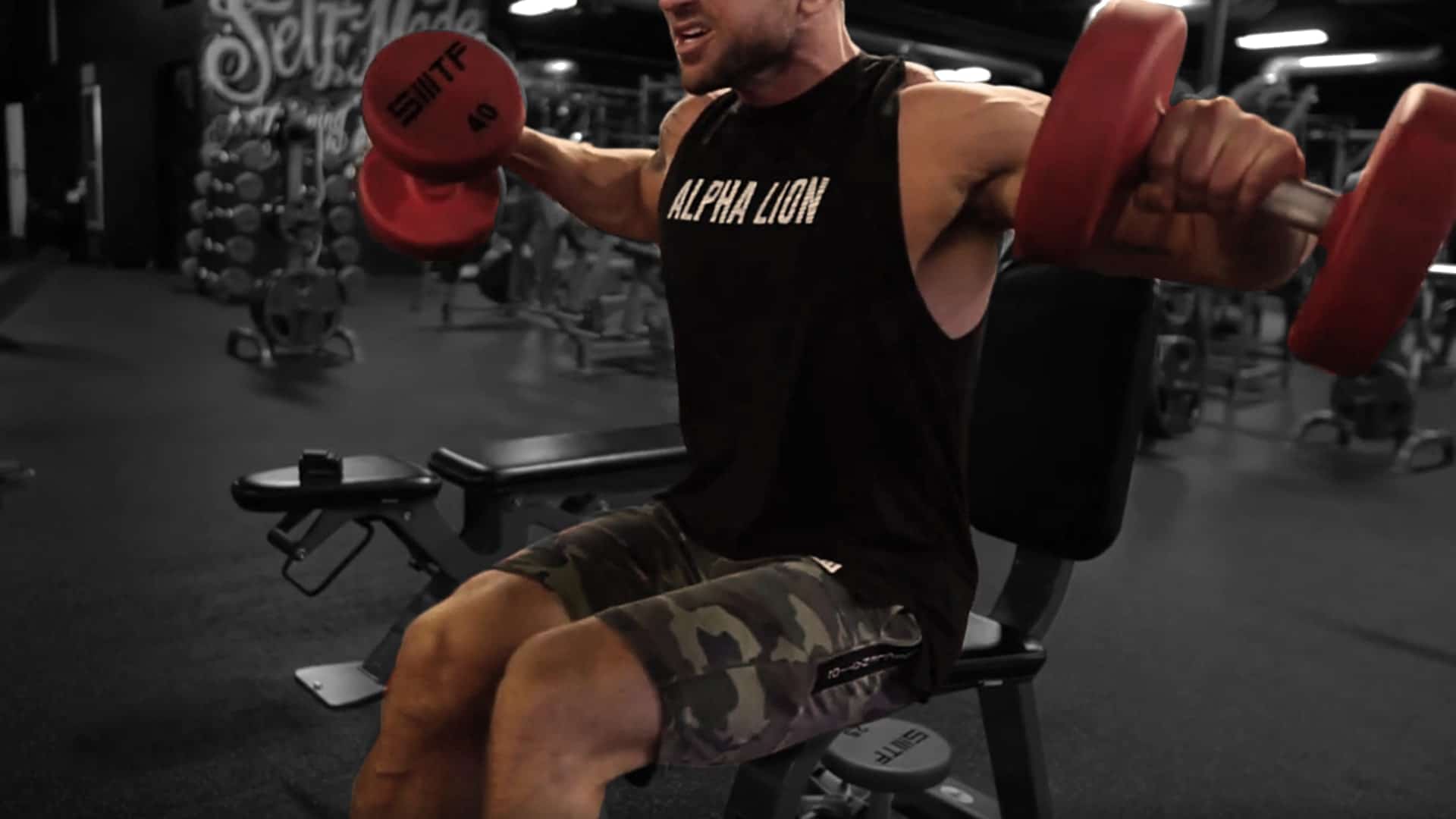
- 1Take two dumbbells. Sit on a flat bench.
- 2Grab a dumbbell in each hand as you extend the arms to your side. While doing so, let the dumbbells rest on the flat bench.
- 3Raise both your arms and take them to your shoulder height.
- 4Lower your dumbbell till you rest it on the workout bench. Always grab sturdy equipment nearby in case you need support.
2. Eccentric Lateral Raises
This variation helps increase muscle tension through time extension. So, you work on increasing the amount of time that you raise your arms. This move adds a lot of resistance to your workout. Here is how you can perform it:
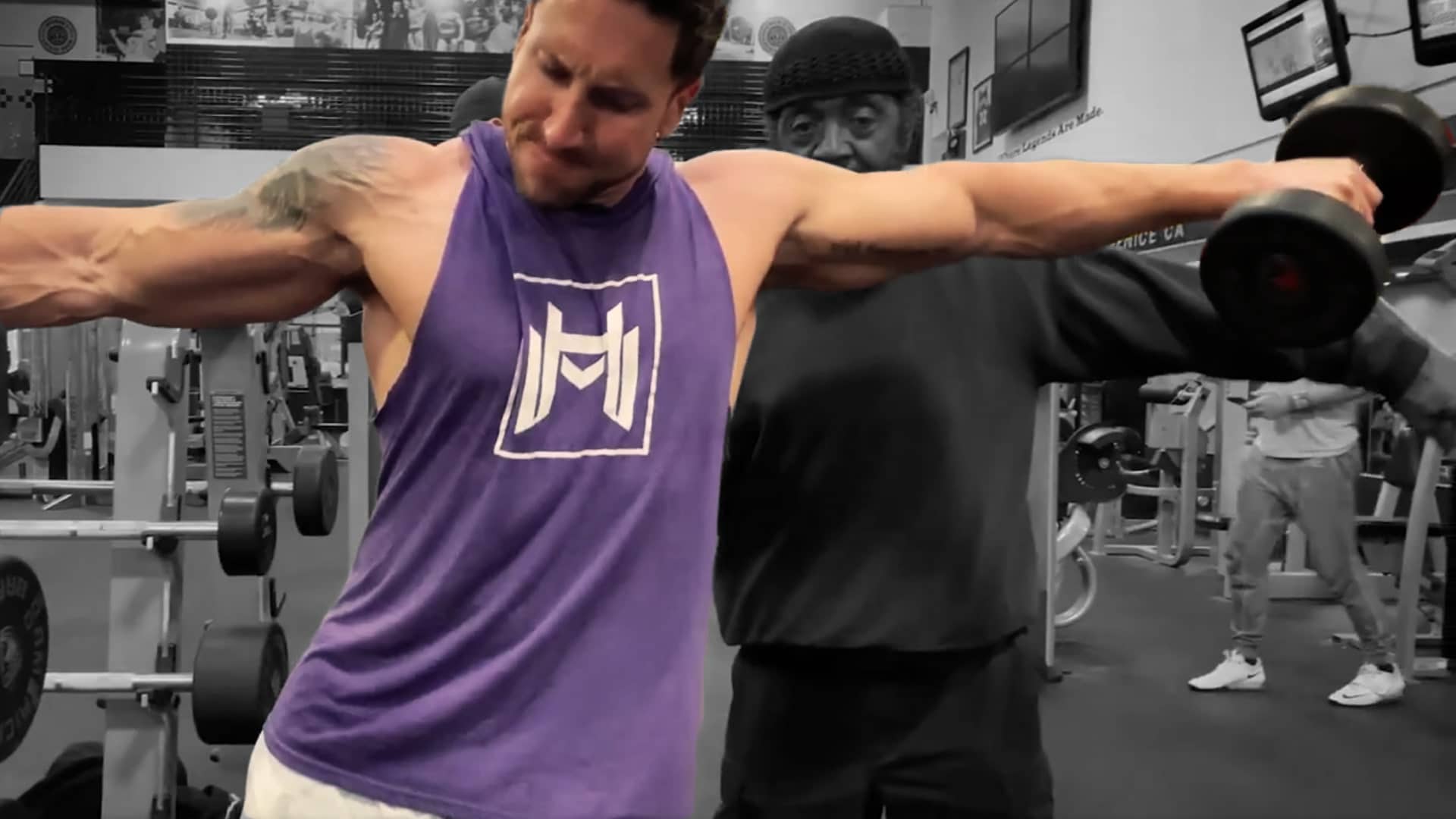
- 1Hold your weights (dumbbells).
- 2Keep your elbows slightly bent to ensure that your arms are extended outwards. To make sure that you are doing the move right, see if you are forming a 'T' shape. Allow your palms to stay flat, facing downwards.
- 3Hold the position for at least three seconds before lowering the elbows slowly back to your sides.
3. Elevator lateral raises
The elevator arm lateral raise increases the amount of time spent by your muscles under tension. This helps improve muscle growth. While it is easy to perform, it can challenge your muscles considerably. Here are the detailed instructions for performing this:
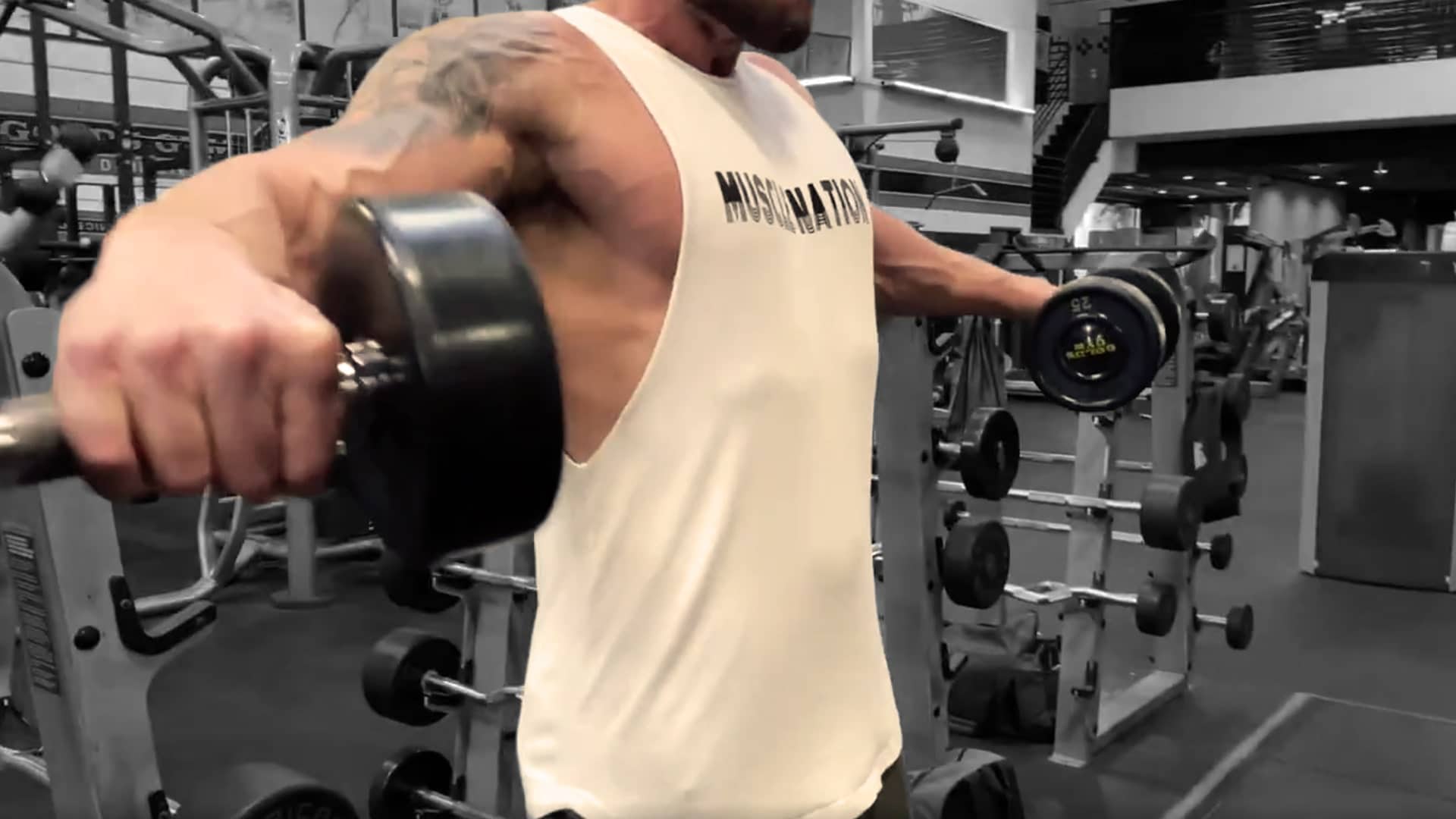
- 1Lock both your elbows as close to your body as possible and hold both the dumbbells in your hands.
- 2Raise your arms to your shoulder height and stand straight.
- 3Now, slowly lower the elbows and lift them back to shoulder height. Lower both your arms back to the sides.
Tips
Benefits of doing the cable lateral raise
The cable lateral raise is a very effective workout for the shoulder as it targets your deltoids. Since this muscle group comprises three different origin points or heads, it features various tissues.
When you perform this exercise, you allow your muscle groups to be isolated. Thus, this move strengthens your deltoids and works beautifully to sculpt your upper body. If you do this regularly, you can build well-shaped, broad, and strong shoulders.

This exercise also helps balance and correct strength discrepancies in the right and left shoulders. Moreover, it stabilizes the shoulder joint through strength-based moves.
Cable lateral raises are great for targeting the three deltoid heads and strengthening the rotator cuff muscles. They not only keep the joints healthy but also help prevent injuries and pains.
Thus, this move works to give you an all-around shoulder and arm workout while allowing you to build upper body fitness and overall stamina.
Summing Up
Cable lateral raises make for effective exercises to shape your arms in a very short time span. While you can perform different scaled-up versions to spice up your workout session, the classic move is equally effective. Plus, if you modify these variations and keep alternating between them, your workout will never get monotonous!
In case you feel any severe pain in your body, always contact a healthcare provider. Professionals can help detect injuries way faster than you can imagine; thus, it is better to prevent an injury or treat it early than to let it linger on and eventually worsen.


